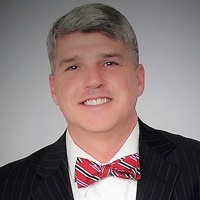Pineland Criminal Lawyer, South Carolina
Sponsored Law Firm
-
 x
x

Click For More Info:
-
Clekis Law Firm P.A.
171 Church St, Charleston, SC 29401» view mapCriminal Defense Law Clekis Cares. We Listen to You.
Clekis Law Firm has been representing clients for over three decades.
800-725-6591
Bennett J. Schiller
✓ VERIFIEDAccident & Injury, Criminal, Divorce & Family Law, Health Care, Workers' Compensation
Becoming a trial lawyer was inevitable for Bennett J. Schiller, III. He was born in Savannah, Georgia in 1968 the son of Bennett and Marie Schiller. N... (more)
FREE CONSULTATION
CONTACTTrip A. Lawton
Accident & Injury, Criminal, Divorce & Family Law, Real Estate, Workers' Compensation
Status: In Good Standing Licensed: 20 Years
FREE CONSULTATION
CONTACTR. Thayer Rivers
Real Estate, Workers' Compensation, Criminal, Personal Injury
Status: In Good Standing
Olesya Matyushevsky
Immigration, Employment, Divorce & Family Law, DUI-DWI
Status: In Good Standing Licensed: 16 Years
Larry W. Weidner
Military, Divorce & Family Law, Criminal, Personal Injury, Child Custody
Status: In Good Standing Licensed: 36 Years
Sally G. Calhoun
Real Estate, Criminal, Family Law, Trusts
Status: In Good Standing Licensed: 50 Years
John R. Hetrick
Social Security -- Disability, Workers' Compensation, Criminal, Personal Injury
Status: In Good Standing Licensed: 47 Years
 Nicholas Clekis Charleston, SC
Nicholas Clekis Charleston, SC

